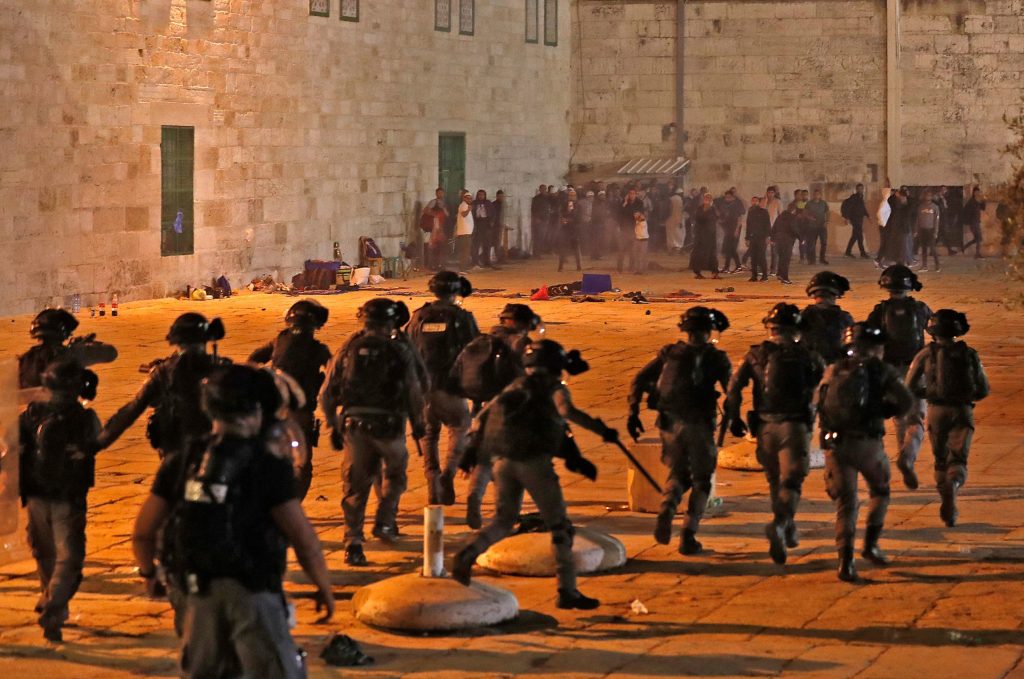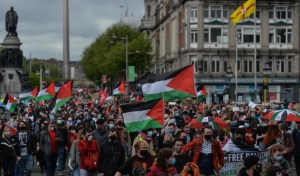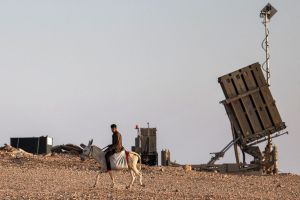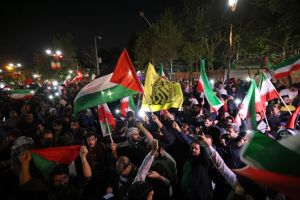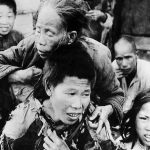The hostilities between Israel and Gaza caught Netanyahu’s government by surprise. What started as a local demonstration by Palestinians against ongoing efforts to evict them quickly escalated into violent clashes with a heavy-handed Israeli police. Hamas then demanded Israel remove its forces from the area, including the nearby Al-Aqsa mosque, or face reprisals. When they didn’t, the terror group retaliated by firing rockets into Jerusalem.
This was on Monday. By Wednesday there had been fierce exchanges of fire between both sides. Hamas fired over 1,500 rockets towards Israeli cities and towns. Despite Israel’s impressive Iron Dome anti-missile system and widely available shelters, over 200 Israelis have been injured and seven killed. With the help of Qatari funding and Iranian training, Hamas has significantly improved its rocket-making and launching abilities. Since 2014, Israel has improved its ability to destroy tunnels, weapons arsenals, and infrastructure used by the terrorists. This is a war that the Israeli Defense Force has prepared for and is well equipped to handle.
But there is one thing the IDF has been unable to deal with: widespread rioting in Israeli towns. Rioters tend to be young Arabs and far-right Jewish men. They leave a trail of destruction, including burnt out synagogues, schools and businesses, blocked roads and railways, torched cars, and damage from hurled rocks.
On Monday, young Arab men attacked Jewish people and properties, causing considerable damage and destruction. The police opted for a policy of ‘inclusion’ that failed to curb the riots and left civilians exposed. Things escalated on Tuesday with two lynchings: an Arab man attacked by a Jewish mob in the city of Bat-Yam and a Jewish man attacked by an Arab mob in the city of Acre. In the city of Lod, a Jewish man was stabbed and an Arab man shot dead. Although police arrested hundreds, the rioting seems to be spiraling out of control. The Israeli government has called in large forces, including many reservists, from the Israeli Border Police to assist police forces. As the situation intensifies, Israel may have to divert resources around the country. The IDF has been preparing for a ground operation in Gaza over the last few days. But if the riots on Israeli soil require much more attention, the politicians might be inclined to achieve a ceasefire earlier than they would have liked. That would mean losing the opportunity to disable Hamas’s rocket factories and firing capabilities, as well as reestablishing deterrence.
Tension between Jews and Arabs in Israel has always been high. But since the vicious rioting of October 2000, there has been some stability, particularly in wider society, where tensions are not as pronounced as on the political level. Jews and Arabs work side-by-side, develop friendships, study together and live together. The pandemic and the recent tragedy of the stampede during a pilgrimage in Meron, in which 45 Orthodox Jews died, brought the sides closer together. Arabs still experience prejudice and inequality and the police have been neglecting the growing violence and crime within Arab towns. Arab leaders and extreme-right Jewish politicians have done little to calm hostilities. Fake news and harmful extremist content on social media have also been significant drivers. This culminated in the demonstrations in Jerusalem during Ramadan — when tensions usually run high — later evolving into rioting in other towns and cities. This brought out Jewish mobs, some connected to a racist group of soccer fans known as ‘La Familia’, who answered calls on social media.
Although both sets of rioters represent fringe groups, so too do they represent the depth of resentment that still exists. When the war ends, Israel and Hamas will continue to be enemies, but it is Israelis and Arabs who will have to work hard to rebuild trust. Small local initiatives calling for an end to violence have emerged, but unless politicians on both sides show better leadership, the riots are unlikely to stop any time soon.
This article was originally published on The Spectator’s UK website.
